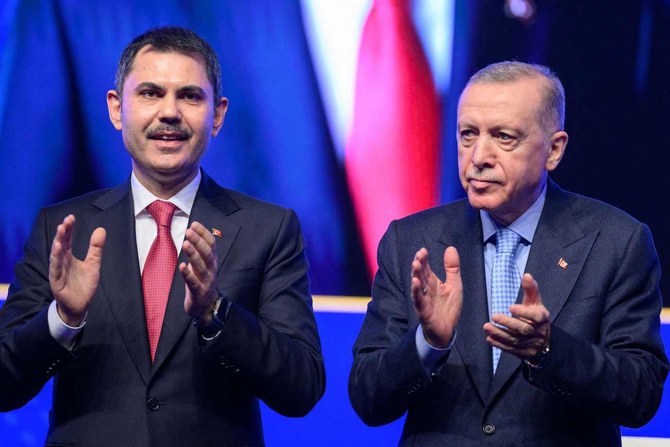Yasar Yakis
In keeping with tradition, I would like to share my assessment about the major events of 2023 in Turkiye and the region. A strong earthquake on Feb. 6 shook several southwestern provinces of Turkiye and proved that the government was not prepared for such calamities. Ten provinces were hit and about 6,000 people were killed. The number of wounded is estimated to be about 40,000. The government launched a big campaign to reconstruct the damaged or destroyed buildings.
In terms of domestic policy, the most important event of 2023 was the election day held on March 31. As expected, a majority of the municipalities were won by the ruling Justice and Development Party, known as the AKP. Another important event was the change in the leadership of the main opposition party, the Republican People’s Party. It remains to be seen whether the new chairman, Ozgur Ozel, will be able to infuse some dynamism into the century-old party.
Turkiye’s EU accession process continues to be dormant. It was mentioned among the titles of the EU agenda, but it was not debated. The bloc’s foreign affairs chief Josep Borrell last month mentioned that the European Commission would assess a report regarding the situation and the potential of common areas of interest pertaining to Turkiye. However, it has now been decided to take up this question in a future session. As an explanation, the commission said that it was decided to do so because of the hotter developments in the region.
Ankara volunteered to host, in 2026, the 31st Session of the Parties to the UN Framework Convention on Climate Change, COP31, but it was criticized for not making any active preparation in advance of the event and that it did not have a clear-cut policy on this subject. The Climate Change Performance Index, which is regularly published by a German institution called Germanwatch, hinted that Turkiye’s preparations were too slow.
There is a group of 63 countries that are responsible for 90 percent of greenhouse gas emissions. In 2022, Turkiye was 47th in this list. It has now dropped to 56th and is included in the category of “very low-performing countries.” Meanwhile, the thaw in Turkish-Greek relations continued in 2023 and was crowned with a meeting of the High-Level Cooperation Council, which met on Dec. 7 in Athens. If both sides continue to demonstrate good will and moderation, there is no reason why these relations cannot continue to normalize.
In the international field, the Ukrainian crisis has dominated the agenda for more than a year, with no prospect of an early outcome. The EU provided Ukraine with only $19.3 billion in 2023. A further $50 billion was promised by the US, but it has so far fallen victim to domestic political considerations. Ukrainian President admitted that the counteroffensive launched by Kyiv last July did not yield the expected results. He still hopes that his country may win the war with the support of Western countries, but admitted that the international community should be ready to sustain a protracted conflict.
More recently, the Gaza crisis has been added to the agenda of international relations. Following its invasion of Ukraine, it was mainly Russia that blocked decisions in the UN Security Council; now, however, the US has taken the lead in doing so. As a result, the mechanisms that were created after the Second World War for the peaceful resolution of conflicts have become ineffective. Turkish President Recep Tayyip Erdogan tries to promote the idea that “the world is bigger than five (the permanent members of the UNSC),” but with little impact in the international arena. Some leaders have also proposed the introduction of a mechanism to force countries to pay compensation for the damage inflicted on other countries.
The EU has decided to start accession negotiations with two more countries, Ukraine and Moldova. Furthermore, Georgia was last month granted candidate status and an EU communique noted that, if Bosnia and Herzegovina sufficiently harmonizes its regulations with the EU, accession negotiations may be initiated with this country as well. The situation on the Azerbaijani-Armenian front showed some improvements last year. The two governments stated that peace negotiations have already started and that they expected the support of the international community. The negotiations were conducted throughout the year on three different platforms, namely Russia, the US and the EU. No peace treaty has yet been signed, but a positive atmosphere is evolving for potential stability in the region. As a gesture of goodwill, Armenia withdrew its candidacy as a host country for COP29 and supported Azerbaijan’s bid instead.
The issue of climate change continues to be a major worry for the future of our planet. The steps taken so far have remained modest. COP28 was held between Nov. 30 and Dec. 13 in Dubai. The most concrete outcome of the meeting was a document assessing the global situation in the field of the climate. It was admitted that, with a view to limiting global warming to 1.5 degrees Celsius, there is a need for a quick and sustainable reduction in greenhouse gas emissions. Some 118 states committed themselves to increasing threefold the world’s capacity for renewable energy by 2030. 2023 was a year of important developments for the Middle East and Eastern Europe. Unfortunately, 2024 does not augur well.







